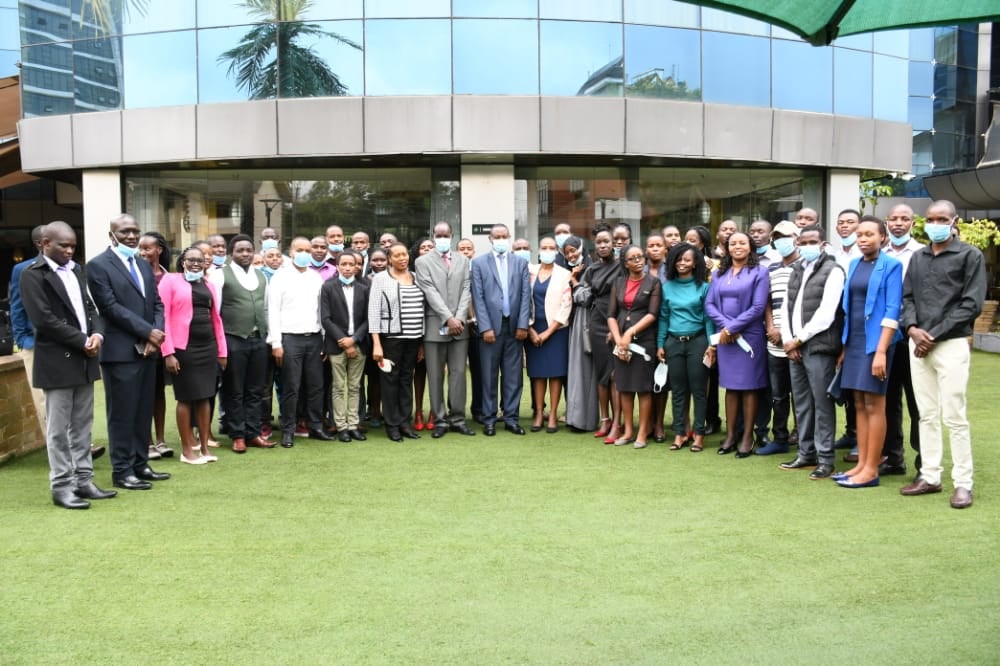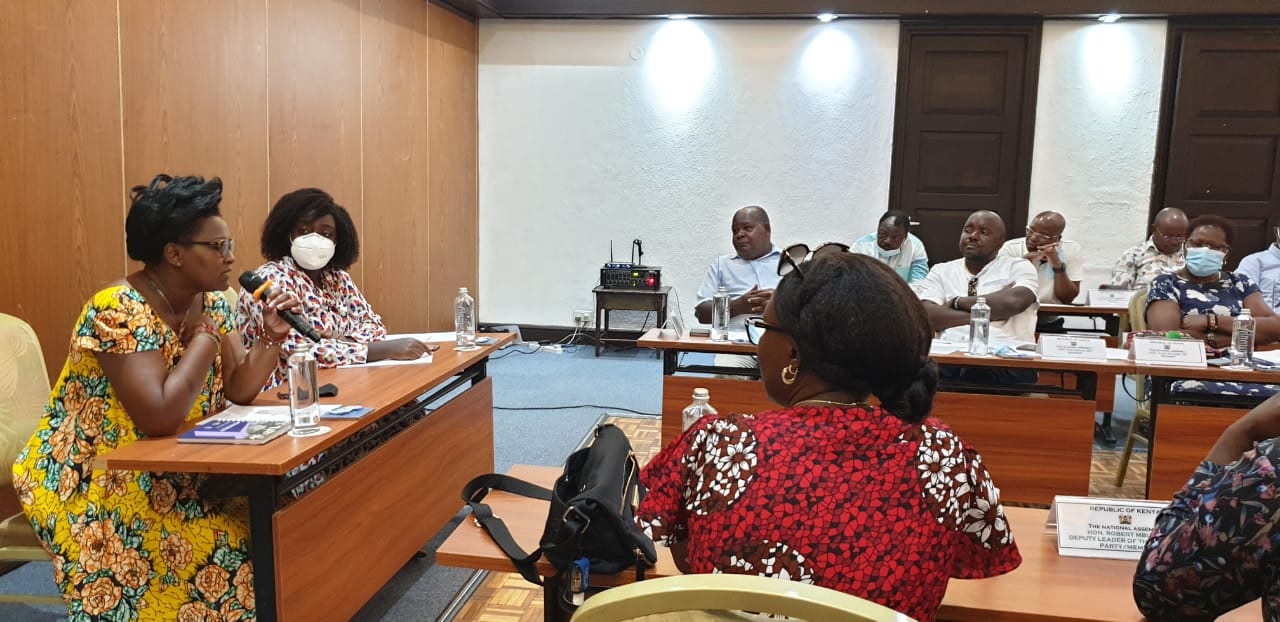Chief Administrative Secretary, Hon. Rachel Shebesh attended a virtual commemoration of the first anniversary of the Nairobi Summit on ICPD25 on 27th January, 2021.
The summit was convened to mobilize political will and financial commitments needed to fully implement the ICPD programme of action.
In her opening remarks, Hon. Shebesh appreciated the great team effort in the implementation of Kenya’s ICPD25 commitments. “I wish to express my appreciation to the National Council for Population and Development for the leadership and coordination provided in the implementation of Kenya’s ICPD25 commitments.” said Hon. Shebesh.
Hon. Shebesh outlined the progress the Ministry has made towards addressing the three commitments out of seventeen that the Ministry was tasked with during the ICPD25 which are zero Female Genital Mutilation by 2022; elimination of all forms of Gender-Based Violence including early child and forced marriages by 2030; and ending gender and other forms of discrimination by 2030.
Hon. Shebesh noted the key achievements made by the Ministry as follows:(i) Establishment of an Inter-Agency Programme to prevent and respond to Gender Based Violence in the context of COVID-19 pandemic.
(ii) Development of a Gender Based Violence Recovery Centres (GBVRCs) and Safe Spaces guidelines for the establishment of the centers in all Level 5 hospitals across the country.
(iii) Adoption of a Multi-Agency Technical Committee at the national level and county Anti-FGM Steering Committees in the 22 FGM hot spot counties.
(iv) Adoption of the National Policy for the eradication of FGM, a policy developed to promote a culture of zero tolerance to FGM in Kenya.
(v) Provision of alternate sources of livelihoods for FGM cutters through interest free loans from Affirmative Action Funds.
(vi) Publicity through media and community sensitization exercises where over 25 million Kenyans were reached.
(vii) Establishment of Gender Based Violence Technical Working Groups in 20 counties to strengthen the coordination of programmes for the elimination of GBV, in line with the Inter-Governmental Consultative Framework on Gender.
(viii) Engagement with male for support as allies, advocates, role models and change agents in all advocacy efforts against GBV/FGM.
The Chief Administrative Secretary committed to accelerating efforts towards the achievement of a society that is free from all forms of violence, strengthen partnerships with strategic actors that include development partners, media, civil society, faith based organizations, and the academia to promote a just, cohesive and more inclusive society and nation at large.
She acknowledged the importance of the support of line Ministries, Counties, Departments and Agencies, Development Partners and Civil Society Organizations in their collective efforts to advance gender equality and safeguarding the human rights of women and girls.
She urged them to stand with Kenya in the Generation Equality Platform that the Government is co-leading with the United Kingdom, Iceland and Uruguay, UN Women and other partners in the Action Coalition on Gender-Based Violence.
“Let us use the opportunity provided by the Generation Equality Forum to galvanize action nationally, regionally, and globally for a more balanced society free from all forms of GBV, ” she said.
The event was presided over by National Treasury Cabinet Secretary, Amb. Ukur Yattani.
By Jacqueline Kirimi








